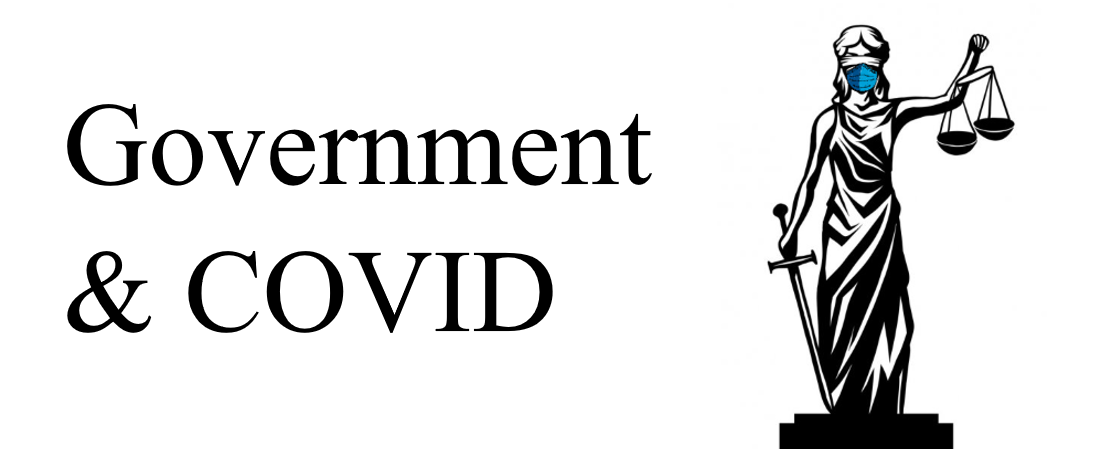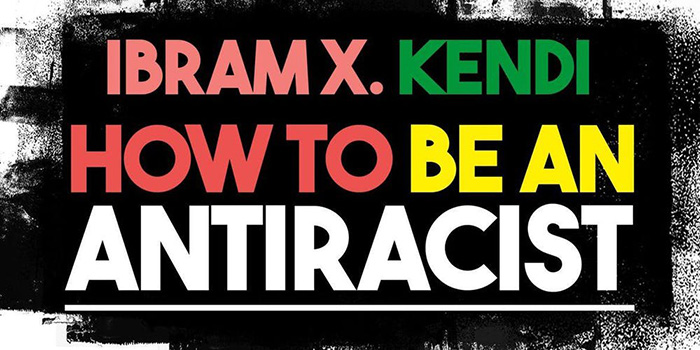Ibram X. Kendi has been described as one of the foremost historians and leading voices of antiracism. He is a New York Times #1 best selling author and a contributing writer at the Atlantic, just to list a few of his accolades.[1]
In 2019, Kendi published “How to be an Antiracist” which was praised by the New York Times as “the most courageous book to date on the problem of race in the Western mind”[2]
In this book Kendi offers a personal memoir in which he retells significant events from his life and explores philosophical ideas around race and racism. The book maps Kendi’s own journey towards ‘antiracist’ ideology.
What I found particularly helpful about this book is how forthright Kendi is about the radical nature of his beliefs. Many Critical Theorists and grievance hustlers are often too embarrassed to state their true intentions outright. Not Kendi. From out the gate, he is willing to espouse the most radical forms of Critical Theory ideology and put into words what his contemporaries are sheepish to admit.
For example, on page 18 he says this
A racist policy is any measure that produces or sustains racial inequity between racial groups. An antiracist policy is any measure that produces or sustains racial equity between racial groups. By policy, I mean written and unwritten laws, rules, procedures, processes, regulations, and guidelines that govern people. There is no such thing as a nonracist or race-neutral policy. Every policy in every institution in every community in every nation is producing or sustaining either racial inequity or equity between racial groups.[3]
Now consider just how radical a claim this is. “Any measure that produces or sustains racial inequity”. By this standard, the policy that makes murder illegal would be considered a racist policy because this policy produces a disparity between the races. What Kendi refuses to recognise is that proportional representation in outcomes is something that has not been achieved or even approximated in any society in recorded history.[4] Moreover, in order to achieve proportionate outcomes, governments and institutions must discriminate against people on the basis of race or ethnicity.
What might this idea look like in practice? Well, in New Zealand, a surgeon might triage his patients and determine who needs surgery most urgently and create a waiting list based on urgency. He may also take into account how long a patient has been waiting. Both these factors would be considered racist by people like Kendi because these sorts of policies produce a disparity between different ethnicities. Instead what surgeons now have to do is give priority to Pacific Island and Maori patients in order to create more ‘equitable’ results.[5] Surgeons need to discriminate against people based on their ethnicity in order to be ‘antiracist’.
Now before I am accused of misrepresenting Kendi’s positions here; Kendi himself is happy to state this explicitly. He says this on page 19;
The only remedy to racist discrimination is antiracist discrimination. The only remedy to past discrimination is present discrimination. The only remedy to present discrimination is future discrimination.[6]
Ibram X. Kendi is more than happy to discriminate against people based on the colour of their skin. He is happily content to award certain people with advantages and burden certain people with disadvantages based purely on their participation in one ethnic group or another.
By any meaningful standard, Kendi is a racist.
He is an ethnic discriminator. He is the one who treats people differently based on the colour of their skin. The great irony of Kendi’s book is that it is a masterful work of projection. The guy who openly calls for race-based discrimination has the gall to call racist anyone who might advocate for impartiality and equal treatment before the law.
RACIST: One who is supporting a racist policy through their actions or inaction or expressing a racist idea.[7]
Kendi is not anti-discrimination, rather, in many cases he is pro-discrimination. For Critical Theorists any disparity has to be explained by some form of oppression. Kendi has a predetermined commitment to the worldview of oppression. He does not examine the evidence to determine whether or not racism exists, rather, racism and oppression are the very lenses through which he examines all evidence. So overriding is this principle that Kendi can assert;
A racist idea is any idea that suggests one racial group is inferior or superior to another racial group in any way.[8]
In his attempt to get rid of any other explanation for disparities, Kendi wants to make clear that the cause for disparity cannot be the results of any factors within the group itself. For example, suggesting that educational disparities between Asian students and Black students are a result of cultural difference, namely that Asians generally value education more than Blacks, is considered racist. Yet studies show that Asian students prefer to spend more time doing school work than Blacks.[9] These disparities are not peculiar to Blacks in America. In Australia, Chinese students spent more than twice as much time on homework as their White counterparts.[10]
Kendi is not concerned with these kinds of explanatory tools, however. Like other Critical Theorists, he simply considers empirical evidence, soundness, and reason to be tools of oppression.[11]
Anyone who would suggest paths of cultural improvement is merely an ‘assimilationist’;
ASSIMILATIONIST: One who is expressing the racist idea that a racial group is culturally or behaviorally inferior and is supporting cultural or behavioral enrichment programs to develop that racial group.[12]
Seventy percent of black children are born to single mothers. The black community would be enriched if they raised children in stable two-parent households. Children from fatherless homes are more likely to be poor, become involved in drug and alcohol abuse, drop out of school, and suffer from health and emotional problems. Boys are more likely to become involved in crime, and girls are more likely to become pregnant as teens.[13] Pointing this out is not racist. Refusing to recognise responsibility for this cause of disparity and suffering is what truly damages communities and cultures.
The full destructive force is seen later in the book when Kendi advocates the tearing down of capitalism, and why not? When people are free to own property and make decisions based on their own preferences, disparity will result. Some ideas are better than others. Some products are better than others. Some people are able to generate more wealth and produce more than others. All of this, by Kendi’s definition, is racist;
To love capitalism is to end up loving racism. To love racism is to end up loving capitalism. The conjoined twins are two sides of the same destructive body.[14]
Kendi’s vision of utopian equity is unachievable in a free society. When people are free to make decisions for themselves disparity will always exist. This is not a bad thing. No one complains that Pacific Islanders are ‘over-represented’ in the All Blacks. No one complains that Blacks are over-represented in the NBA.
If we want to manufacture equal outcomes in all institutions, then the only way this is achieved is through the kind of tyrannical oppression that has wrought misery and suffering throughout the globe. Communism and socialism share Kendi’s goals of equitable outcomes, and the fruit of this ideology has been 100 million dead in the last century.
It is frightening that Kendi seems fine with top-down oppression in order to achieve his utopia. It is even more frightening that people who consider themselves compassionate and on the side of the oppressed are praising his book and supporting his deadly ideas. Elsewhere Kendi has advocated an “antiracist amendment” to the constitution;
To fix the original sin of racism, Americans should pass an anti-racist amendment to the U.S. Constitution that enshrines two guiding anti-racist principals: Racial inequity is evidence of racist policy and the different racial groups are equals. The amendment would make unconstitutional racial inequity over a certain threshold, as well as racist ideas by public officials (with “racist ideas” and “public official” clearly defined). It would establish and permanently fund the Department of Anti-racism (DOA) comprised of formally trained experts on racism and no political appointees. The DOA would be responsible for preclearing all local, state and federal public policies to ensure they won’t yield racial inequity, monitor those policies, investigate private racist policies when racial inequity surfaces, and monitor public officials for expressions of racist ideas. The DOA would be empowered with disciplinary tools to wield over and against policymakers and public officials who do not voluntarily change their racist policy and ideas.[15]
Great! Just what we need… An antiracist police force that can wield disciplinary tools over those who aren’t discriminating against people based on race. Will these disciplinary tools include Gulags?
So, in summary, in order to be antiracist, we all need to start discriminating against people on the basis of race, we need to abandon capitalism and we need a tyrannical government agency to punish anyone who doesn’t get with the program.
With that in mind, I guess I’m okay with being the kind of hideous racist who thinks that we should treat all people equally.
[1] For more bio information see this link; https://www.ibramxkendi.com/about
[2] https://www.nytimes.com/2019/08/20/books/review/how-to-be-an-antiracist-ibram-x-kendi.html
[3] Kendi, Ibram X.. How To Be an Antiracist (p. 18). Random House.
[4] Horowitz, D. L. (1985). Ethnic Groups in Conflict. Berkeley, University of California Press. p. 677
[5] https://www.stuff.co.nz/national/health/121640802/mori-and-pasifika-given-priority-in-elective-surgery-waitlists
[6] Kendi, Ibram X.. How To Be an Antiracist (p. 19). Random House.
[7] Ibid (p. 13)..
[8] Ibid (p. 20).
[9] Thomas D. Snyder, Cristobal de Brey and Sally A. Dillow, Digest of Education Statistics: 2015, 51st edition (Washington: U.S. Department of Education, National Center for Education Statistics, 2016), pp. 328, 329.
[10] Sowell, Thomas. Discrimination and Disparities (p. 102). Basic Books.
[11] Bailey, A. (2017) Tracking Privilege-Preserving Epistemic Pushback. p. 181 “By interrogating the politics of knowledge-production, this tradition also calls into question the uses of the accepted critical-thinking toolkit to determine epistemic adequacy. To extend Audre Lorde’s classic metaphor, the tools of the critical thinking tradition (for example, validity, soundness, conceptual clarity) cannot dismantle the master’s house:”
[12] Kendi, Ibram X.. How To Be an Antiracist (p. 24). Random House.
[13] https://fathers.com/statistics-and-research/the-consequences-of-fatherlessness/
[14] Kendi, Ibram X.. How To Be an Antiracist (p. 163). Random House.
[15] https://www.politico.com/interactives/2019/how-to-fix-politics-in-america/inequality/pass-an-anti-racist-constitutional-amendment/


